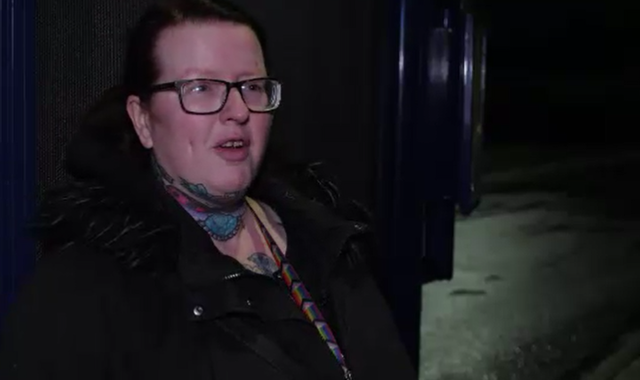The wait for more buses: Woman describes 90-minute journey to work as local services slashed

It is 5.30am and 3 degrees C outside. Heather is getting ready to leave for her one and a half hour journey into work. It involves three buses and long waits in the dark.
"It's not fun is it? I mean, it feels like it's the middle of the night. It's cold, it's dark, it's miserable. I mean, at least it's not raining today, but yeah, it's not good."
From her home in Rawmarsh, South Yorkshire, she travels to Rotherham. Here, she gets another bus to Sheffield, before jumping on the final bus to the city centre. When she arrives at work, an LGBT youth charity, dawn is only just breaking.
Heather has lived in the same house for 17 years. She used to have a reliable bus service - three different buses ran every 20 minutes from her home, meaning she could get a bus every five minutes.
Those three buses have been cut to one. On the way home, the evening service has been slashed so that her one bus home from Rotherham to Rawmarsh runs every two hours. She's had to change her working hours as a result.
"I used to work regular 9-5 office hours but I can't guarantee getting home if I finish at 5pm, without having to sit in Rotherham station for 2 hours."
It means she has to leave for work earlier and she is unable to make any plans to stay in the city centre in the evenings. Sometimes the buses simply don't turn up, forcing her to take taxis to and from work.
It's a journey that would take just 28 minutes by car. "I can't do this long term, so I'm going to look into driving lessons in the new year," she said.
Heather's experience is not unusual. Across the country people are struggling to get to work, school, or college on a bus network that has been drastically reduced over the past decade. According to official figures, bus services have been cut by 21% in England and Wales since 2008. In Yorkshire and Humber, that figure rises to 23%.
The funding model for local buses is coming under scrutiny. Left to its own devices, the market is failing some communities.
A combination of rising costs and falling demand means private operators have been withdrawing services on unprofitable routes. Local authorities have been subsidising some of these routes but their budgets are also under strain.
The government has promised to invest £1bn into the bus networks of the West Midlands and north of England as part of its Network North plan.
It's part of a broader pledge to invest the money saved by scrapping HS2 into local infrastructure projects in the North. In doing so, the government can claim it is still honouring its manifesto promise to "level up" the country.
However, campaigners are calling for more drastic action. Oliver Coppard, the mayor for South Yorkshire, called for a reverse to the deregulation and privatisation of the country's bus network, a process that began under Margaret Thatcher in 1985.
"It's the way the system operates that is broken. We need to get back to a system where we are in control of the buses that run on our roads. It is a public service and it should be run in the interests of the public.
"The government has said they're saving £36bn from scrapping the HS2 connection up to Manchester.
"They'd already scrapped the HS2 connection this side of the Pennines, Sheffield and Leeds, but they're only putting £19bn back into transport infrastructure in the North. What we need is improvements today in our bus network. Buses are crucial to our communities. They might not be the most glamorous form of transport, but they are the most effective means of connecting people with places."
Read More:
Self-driving cars could be on British roads by 2026, says transport secretary
Manchester's Bee Network buses roll out as part of 'symbolic' public ownership plan
Buses are still overwhelmingly the most popular mode of public transport and people in this part of the country have been calling for better bus services for years.
Like Heather on her morning commute, the wait for more buses looks likely to continue.


